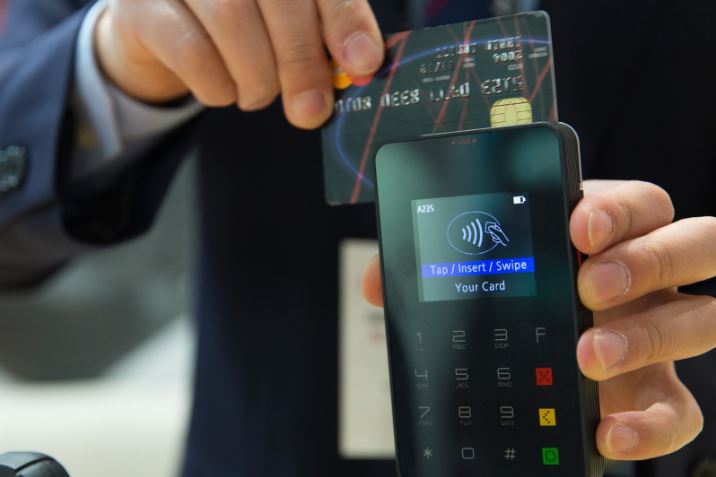If you have a credit card or signed a contract with a utility company or mobile-phone service, chances are you already have a personal credit score. The same goes for your business. If it has been around for a while, your establishment would have its own business credit rating. Interestingly, only a few business owners in Australia are aware of this. Here’s why you should starting taking note of your business credit score…
Just as the personal credit score reflects your ability to repay your loans on time, the business credit rating represents your company’s ability to meet its financial obligations. It is one of the things creditors and potential investors look at to assess the overall financial health of a business. Let’s say, for example, you want to take out a loan to expand your restaurant business or you want to lease new premises for a second store. You need to present a healthy business credit score to get loans at favourable terms.
Personal vs Business Credit Score
Your business credit information does not include your personal information to calculate the credit score. It is composed of commercial information such as company status, shareholders and share division, the names of the current directors and trading address, as well as any information on history of insolvency. If you have filed for bankruptcy in the past, this will also be reflected on the business credit information and will likely affect your score.
For larger companies, the commercial credit score of an entity’s owners does not have a huge impact on the business credit score. However, if you are a sole proprietor / trader or partner in your foodservice business, lenders may not treat your personal credit score as independent from your business credit. This is because you are viewed as solely responsible for all trades and transactions that the business goes into.
Factors that affect your business credit rating
The business credit score is computed based on the information on the entity’s credit file. This includes the following items:
- Existing credit – the type of loans that your business has applied for, along with the type of lenders you have transacted with before
- Business age – this refers to how long your business has been in operation. A newly-opened restaurant may be considered riskier than a family bakeshop that has been around for decades.
- Commercial credit – history of defaults, and any other court judgements related to unpaid loans
- Information on the directors – business directors and any history of bankruptcies, defaults and other items listed in the directors file may affect your score
- Registration – the details of your Personal Property Securities Register (PPSR) will also have an effect on your credit score
- Company details – information on your company including structure, legal entity name, directors, shareholders, business address, etc.
- Information that is on public record – history of recorded liens, judgements and lawsuits may also impact your business credit score.
How do I get a good business credit score?
It’s never a good practice to mix business and personal transactions because these tend to affect your credit scores on both fronts. If you are a sole proprietor to your foodservice business and are registered as such, you should make sure you’re on top of both your consumer credit rating and your business credit information. This is because lenders tend to refer to both information, along with other items, against their approval criteria.
If you follow the sole proprietorship structure for your foodservice or hospitality business, it is advisable that you maintain both sets of credit information clean and in good standing. You do this by:
- Making loan repayments on time
- Try not to apply for credit several times within a short timeframe
- Address all financial setbacks as soon as possible
One alternative is to set up your foodservice business as a registered company. The entity (and not the person) will be seen as responsible for all transactions made under this registered name. All loan applications will be associated with the company rather than the person running the business. However, be aware that this does not negate financial liability.
For building a positive business credit rating, we advise that you do the following:
- Establish good relationships with suppliers and vendors who can become a trade reference when you make a loan application or business credit score request.
- As a general rule, your net income should be able to repay your annual debt.
- Request your business credit report regularly and be on the lookout for inaccuracies
How do I request my business credit report?
If you run a sole proprietorship food business, it is important to be updated with your personal credit report. Making sure that your credit report stays accurate is also a way to prevent identity theft. You can obtain this information from Equifax or one of the major reporting agencies for free.
For security reasons, the business credit report can only be accessible by subscribing to Equifax. This costs $199.95 per year – a small price to pay to ensure that you are on top of your business’ financial health. If you use this subscription for business purposes, you may also be eligible for a tax deduction.
Stay on top of your business credit score by keeping your books clean. Set up your bookkeeping system with Restaurant Bookkeepers Australia.
Call Restaurant Bookkeepers Australia now on 1300 043 327 to get help in managing your books so your credit score stays high.
We are 100% cloud based and can easily help you no matter where you are in Australia. Easy sign up. No contracts. Pay as you go. Get started immediately. Contact us today!
Get started on a clean slate. Learn more about the costly mistakes that you should avoid in restaurant bookkeeping, which could also hurt your business credit score in the long run.
Mise en place!
Christine Green and team

